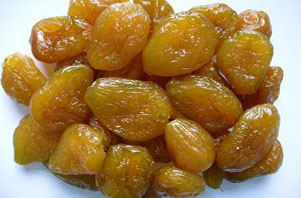fig
Delicious, sweet flavor fig fruit is one of the olden fruits enjoy in the human history. It’s also called as anjeer. Fig fruits are bell-shaped, with a wide, flat bottom narrowing to a pointed top. When the fruit ripens, the top may twist, forming a "neck." Figs can be brown, purple, green, yellow or black, and vary in size. The skin is slightly wrinkled and stringy.
They are often dried for preservation, since the fresh fruits are highly delicate. The fig flowers develop inside the fruit and cannot be seen. Figs tend to be more popular in their dried form because fresh figs are very slight and tend to deteriorate quickly. When choosing fresh figs, select those which are plump and tender, have a rich, deep color, are free from bruises and are not soft. The figs fruits include more health benefits treatment of sexual weakness, constipation, indigestion, piles, diabetes, cough, bronchitis, and asthma. It also helps in gaining weight after illness. Botanically figs belong to the mulberry family (Moraceae); of the genus, Ficus. Scientific name: Ficus carica.
Figs are sweet and soft and their paste is used as a replacement for sugar. Processed figs are used to make pies, pudding, cakes, other bakery products, jam, jellies and preserves.
Nutrients:
It contains Vitamin A, Vitamin B1, Vitamin B2, soluble dietary fiber, minerals, vitamins and pigment anti-oxidants, calcium, copper, potassium, manganese, iron, selenium and zinc.
Healthy Benefits:
The dietary fiber in figs can also help to lose weight and is fitting for obese individuals. Be careful -- figs also cause weight gain, mainly when taken with milk.
Fiber in figs helps keep against post-menopausal breast cancer.
The large mucilage pleased of the fruit aids you to cure and take care of painful throats.
Figs contain Pectin, a soluble fiber. When fiber goes during the digestive system, it mop up globes of cholesterol and carries them out of body.
Dried figs contain phenol, Omega-3 and Omega-6. These oily acids decrease the risk of coronary heart disease.










0 comments: